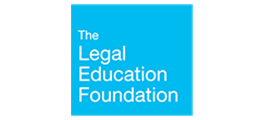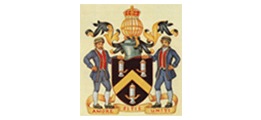“No-one believes me, [not] the Home Office, my lawyers, my social worker. I have no-one and you are first one listening. Please—why they punish me more and more?”
Habibullah was 13 years old when he arrived in the UK. Alone with nothing. He had made the journey from Afghanistan after the Taliban had attacked his family. They killed his father. They kidnapped his brother—an officer working for the British army who was later executed. They shot Habibullah in the chest. Incredibly, he survived and his escape to a safe country hurriedly arranged by his mother and extended family.
He arrived to the UK—a country in which he believed he would be protected and looked after. A country of fairness and decency. Something Habibullah had heard from his brother and the British soldiers he worked alongside. On his way to the UK he was abused by the people smugglers who had been paid to give him safe passage. He lost contact with his mother. But despite everything that had happened to him, he was happy to arrive at the UK border. He was full of hope.
How would you expect a child like Habibullah to be treated when he arrived in the UK? With fairness? Dignity? Decency?
He was arrested and detained at the border by the UK authorities and returned to France where he was once again at the mercy of abusive people smugglers and fell ill because of inhuman living conditions in the makeshift camps in Calais. He came to the UK again trying to seek protection and was again arrested and detained by immigration officials on arrival, unable to access medical treatment for his injuries and not referred to Kent Social Services as a lone ‘child in need’. Instead, he was interrogated alone, and the contents of the interview were used to discredit his international protection claim. His age was disputed and his application for asylum refused.
Habibullah was represented by our lawyers and finally granted refugee status and is now trying to recover from his past and rebuild his life. He continues to receive counselling and is going to college with aspirations of becoming a doctor or nurse so he can give back to society. Habibullah is still searching for his mother.
The bigger picture
But Habibullah is not a lone voice. We were providing legal support to other children and young people in his position, and what we heard from them about their experiences on arrival to the UK raised serious concerns. Their complaints were left largely unexplored by professionals and instead children were accused of fabricating stories about their mistreatment on arrival. We carried out enhanced evidence gathering and through our connections with instructed lawyers, foster carers and support workers, we were able to piece together the stories of other children and young people like Habibullah.
These investigations uncovered wholesale abuse of the rights of children arriving in several UK ports, including searching, fingerprinting, detention and interviewing, all without the presence of an independent responsible adult or any legal representation. Interviews were routinely used to discredit children in asylum decision-making.
Initial attempts to resolve problems at a policy level were unsuccessful and we shared our findings in more detail with larger refugee, migrant and children’s charities who were wholly unaware of the problems the children were facing.
We developed parallel legal and policy strategies. Strategic test case litigation was initiated with the Higher Courts to challenge the lawfulness of the treatment of children – Habibullah and many other children agreeing to allow their cases to form part of the challenge. In tandem, the Office of the Children’s Commissioner for England (OCC) decided to formally investigate the children’s rights issues raised.
It later emerged that there was a secret bilateral agreement between UK and French authorities under which ‘illegal entrants’, including unaccompanied children, were being ‘ghosted’ back to France if they did not formally seek asylum on arrival, without access to legal advice, or any form of judicial scrutiny. We also discovered that Kent Social Services were unaware of the existence of these children prior to, and after, removal.
The OCC produced reports about their border inspections and evidence from the Refugee Council and Social and health care practitioners in Kent also played a vital role in litigation proceedings.
Through the litigation, we established that no unaccompanied asylum seeking child arriving in the UK will be detained and/or interrogated on the substance of their asylum claims without first having their cases referred to the relevant children’s services department and having their humanitarian needs met. The Court of Appeal judgement also confirmed that no child under 16 should have their physical person interfered with without the safeguard and presence of a responsible adult and security guards, namely G4S, were not, and should never be, considered responsible adults for immigration processes.
Before the judgement was handed down the then Immigration Minister announced that, at point of arrival, all unaccompanied children seeking asylum must be provided a period of up to 4 days to rest and recuperate from their journey and arrange for legal representation. In future, therefore, asylum claims will be decided on information given by children who have had an opportunity to rest; have their medical and welfare needs met; have been fully prepared for interview and are accompanied by lawyers.
As a result of the policy influencing work, the government also made a guarantee that no unaccompanied child will be removed to France under the secret ‘gentleman’s agreement between France and the UK. A sub group of the Kent Local Safeguarding Board was also established to monitor protection and identification mechanisms for children in Kent (in response to the OCC report, which identified the risk this posed to children who may have been trafficked to the UK).
Following this resolution, we have provided training to lawyers and NGOs on the legal judgment and in particular how to identify children whose cases had been affected and how to ensure their protection claims are considered properly and fairly, resulting in better decision-making procedures and processes for these children and young people who have since attained majority. For its part the Home Office issued new policy and practice to ensure immigration staff acted lawfully in future cases involving vulnerable children arriving on our shores to seek international protection.
MiCLU continues to work closely with lawyers, officials and NGOs to monitor the treatment of separated children arriving to the UK and the recent 2015 report ‘put yourself in our shoes’ highlights significant improvements in law, policy and practice when handling the cases of newly arrived children seeking international protection.
When we told Habibullah that we had succeeded with the public interest challenge in his case and for other children, he turned to us and said: “We are mice and we won the lion”.
This case study illustrates:
- The law can provide a voice to marginalised and disadvantaged young people
- The law is an effective tool to create social and systemic change
- Despite the odds, it is possible to achieve meaningful progress that benefits wide groups
- Providing a specialist legal service with strategic child rights capacity can be crucial in ensuring that young people are adequately supported and that gaps or flaws in legal and support provision are recognised and acted upon
- With the right mix of training – legal and non-legal practitioners can identify unlawful policies, practices and procedures
- Legal expertise and legal recourse can be a critical factor in bringing policy influence to bear
- The real added value comes in the connection between different professionals, organisations and agencies placing children and young people at the heart of services and social change initiatives









